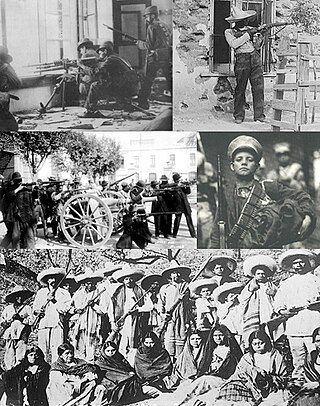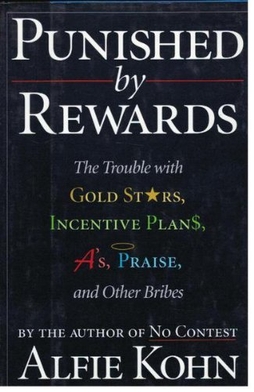
The Marshall Plan was an American initiative enacted in 1948 to provide foreign aid to Western Europe. The United States transferred $13.3 billion in economic recovery programs to Western European economies after the end of World War II. Replacing an earlier proposal for a Morgenthau Plan, it operated for four years beginning on April 3, 1948, though in 1951, the Marshall Plan was largely replaced by the Mutual Security Act. The goals of the United States were to rebuild war-torn regions, remove trade barriers, modernize industry, improve European prosperity and prevent the spread of communism. The Marshall Plan proposed the reduction of interstate barriers and the economic integration of the European Continent while also encouraging an increase in productivity as well as the adoption of modern business procedures.
Operant conditioning, also called instrumental conditioning, is a learning process where voluntary behaviors are modified by association with the addition of reward or aversive stimuli. The frequency or duration of the behavior may increase through reinforcement or decrease through punishment or extinction.

The Mexican Revolution was an extended sequence of armed regional conflicts in Mexico from 20 November 1910 to 1 December 1920. It has been called "the defining event of modern Mexican history", and destroyed the Federal Army, its replacement by a revolutionary army, and the transformation of Mexican culture and government. The northern Constitutionalist faction prevailed on the battlefield and drafted the present-day Constitution of Mexico, which aimed to create a strong central government. Revolutionary generals held power from 1920 to 1940. The revolutionary conflict was primarily a civil war, but foreign powers, having important economic and strategic interests in Mexico, figured in the outcome of Mexico's power struggles; the U.S. involvement was particularly high. The conflict led to the deaths of around one million people, mostly non-combatants.

In behavioral psychology, reinforcement refers to consequences that increase the likelihood of an organism's future behavior, typically in the presence of a particular antecedent stimulus. For example, a rat can be trained to push a lever to receive food whenever a light is turned on. In this example, the light is the antecedent stimulus, the lever pushing is the operant behavior, and the food is the reinforcer. Likewise, a student that receives attention and praise when answering a teacher's question will be more likely to answer future questions in class. The teacher's question is the antecedent, the student's response is the behavior, and the praise and attention are the reinforcements.
Good cop, bad cop, also informally called the Mutt and Jeff technique, is a psychological tactic used in interrogation and negotiation, in which a team of two people take opposing approaches to the subject. One interrogator adopts a hostile or accusatory demeanor, emphasizing threats of punishment, while the other adopts a more sympathetic demeanor, emphasizing reward, in order to convince the subject to cooperate. It is an instance of the Reid technique.

In general, incentives are anything that persuade a person or organization to alter their behavior to produce the desired outcome. The laws of economists and of behavior state that higher incentives amount to greater levels of effort and therefore higher levels of performance. For comparison, a disincentive is something that discourages from certain actions.

Thomas Crombie Schelling was an American economist and professor of foreign policy, national security, nuclear strategy, and arms control at the School of Public Policy at University of Maryland, College Park. He was also co-faculty at the New England Complex Systems Institute.
Child discipline is the methods used to prevent future unwanted behaviour in children. The word discipline is defined as imparting knowledge and skill, in other words, to teach. In its most general sense, discipline refers to systematic instruction given to a disciple. To discipline means to instruct a person to follow a particular code of conduct.

Animal training is the act of teaching animals specific responses to specific conditions or stimuli. Training may be for purposes such as companionship, detection, protection, and entertainment. The type of training an animal receives will vary depending on the training method used, and the purpose for training the animal. For example, a seeing eye dog will be trained to achieve a different goal than a wild animal in a circus.

The public goods game is a standard of experimental economics. In the basic game, subjects secretly choose how many of their private tokens to put into a public pot. The tokens in this pot are multiplied by a factor and this "public good" payoff is evenly divided among players. Each subject also keeps the tokens they do not contribute.
Economic warfare or economic war is an economic strategy used by belligerent states with the goal of weakening the economy of other states. This is primarily achieved by the use of economic blockades. Ravaging the crops of the enemy is a classic method, used for thousands of years.
Litherland High School is a secondary school in Litherland, Merseyside, England, headed by Principal Mrs Claire Hallwood since 2024. The school was established in March 1948 as the first post-war school to be built in Lancashire, costing £116,000. The school made news headlines in 1981 with accusations of excessive corporal punishment, with reports of over 1,800 slipperings occurring over the preceding four terms up to February 1981.
Punishment is any change in a human or animal's surroundings which, occurring after a given behavior or response, reduces the likelihood of that behavior occurring again in the future. Reinforcement, referring to any behavior that increases the likelihood that a response will occurs, plays a large role in punishment. Motivating operations (MO) can be categorized in abolishing operations, decrease the effectiveness of the stimuli and establishing, increase the effectiveness of the stimuli. For example, a painful stimulus which would act as a punisher for most people may actually reinforce some behaviors of masochistic individuals.
Behavior management, similar to behavior modification, is a less-intensive form of behavior therapy. Unlike behavior modification, which focuses on changing behavior, behavior management focuses on maintaining positive habits and behaviors and reducing negative ones. Behavior management skills are especially useful for teachers and educators, healthcare workers, and those working in supported living communities. This form of management aims to help professionals oversee and guide behavior management in individuals and groups toward fulfilling, productive, and socially acceptable behaviors. Behavior management can be accomplished through modeling, rewards, or punishment.

Carrotmob is a nonprofit organization based in San Francisco, California. It uses buycotts to reward a business's commitment to making socially responsible changes to the business. Carrotmob also refers to a global movement of community organizers who use the Carrotmob tactic of consumer activism as a way to help change businesses in their communities. In a Carrotmob buycott, businesses compete to be the most socially responsible business, and then a network of consumers spends money to support the winner.
Censorship in Communist Romania occurred during the Socialist Republic in two stages: under the first Communist president Gheorghe Gheorghiu-Dej (1947–1965) and the second and last Communist president Nicolae Ceaușescu (1965–1989).
In political philosophy, a throffer is a proposal that mixes an offer with a threat which will be carried out if the offer is not accepted. The term was first used in print by political philosopher Hillel Steiner; while other writers followed, it has not been universally adopted and it is sometimes considered synonymous with carrot and stick. Though the threatening aspect of a throffer need not be obvious, or even articulated at all, an overt example is: "Kill this man and receive £100; fail to kill him and I'll kill you."
Agrarian socialism is a political ideology that promotes social ownership of agrarian and agricultural production as opposed to private ownership. Agrarian socialism involves equally distributing agricultural land among collectivized peasant villages. Many agrarian socialist movements have tended to be rural, locally focused, and traditional. Governments and political parties seeking agrarian socialist policies have existed throughout the world, in regions including Europe, Asia, North America, Latin America, and Africa.
Compellence is a form of coercion that attempts to get an actor to change its behavior through threats to use force or the actual use of limited force. Compellence can be more clearly described as "a political-diplomatic strategy that aims to influence an adversary's will or incentive structure. It is a strategy that combines threats of force, and, if necessary, the limited and selective use of force in discrete and controlled increments, in a bargaining strategy that includes positive inducements. The aim is to induce an adversary to comply with one's demands, or to negotiate the most favorable compromise possible, while simultaneously managing the crisis to prevent unwanted military escalation."

Punished by Rewards: The Trouble with Gold Stars, Incentive Plans, A's, Praise, and Other Bribes is a 1993 book by Alfie Kohn that argues against the use of rewards to incentivize behavior.









